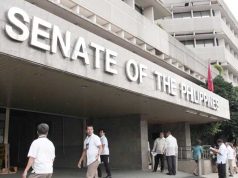Gov’t makes full award of bonds as yield ends flat on BSP easing
THE GOVERNMENT made a full award of the reissued three-year Treasury bonds (T-bond) it auctioned off yesterday following monetary easing moves by the Bangko Sentral ng Pilipinas (BSP) last week and amid easing inflation.
The Bureau of the Treasury (BTr) successfully raised P20 billion worth of the reissued bonds as programmed as the offer was more than twice oversubscribed, with bids totalling P50.8 billion.
The three-year papers, which have a remaining life of two years and nine months, fetched an average rate of 3.996%, 3.5 basis points (bps) higher than the 3.961% quoted when the tenor was last offered on Aug. 27.
The three-year notes fetched 4.164% yesterday, based on the Bloomberg Valuation Service Reference Rates.
Deputy Treasurer Erwin D. Sta. Ana said the yield on the three-year bond ended flat as the market priced in the announcement of a 100-bp cut in banks’ reserve requirement ratio (RRR) in November as well as the central bank’s forecast for September headline inflation.
“It was just over three basis points difference so we view it as flat from the previous [auction]. Over the course of the last few weeks, the rates have inched up a bit but now it has started to moderate a little, and we think that the factors contributing to that, of course the additional RRR cut in November, the…BSP (Bangko Sentral ng Pilipinas) inflation figure for September,” Mr. Sta. Ana told reporters after the auction.
He said the RRR cut, as well as maturing government bonds in November, will result in increased liquidity.
A bond trader agreed, saying banks asked for slightly higher yields as expected after the BSP’s decision to cut policy rates by another 25 bps and also reduce banks’ reserve ratios by 100 bps.
“[The result was] kind of expected after the combo cuts. Also, earlier today, [BSP Governor Benjamin E. Diokno] committed to more RRR cuts during his term,” the trader said in a phone message on Tuesday.
The trader added that the market has calmed down as global oil prices continue to normalize following the attack on Saudi’s oil facilities last month.
The central bank’s policy-setting Monetary Board cut benchmark interest rates by another 25 bps at its meeting last Thursday, bringing the rates for overnight reverse repurchase, overnight deposit and lending to four percent, 3.5% and 4.5%, respectively, amid easing inflation.
On Friday, the central bank announced it will reduce lenders’ RRR by another 100 bps, which will take effect in November. This will bring the reserve requirement of universal and commercial banks to 15% from 16%, thrift banks to five percent from six percent, and to three percent from four percent for rural and cooperative banks.
Meanwhile, the BSP’s Department of Economic Research said on Monday that headline inflation in September likely settled within the 0.6-1.4% range amid declining rice prices and electricity rates, which will offset the recent uptick in fuel prices and other prices.
The estimate range for September inflation — which the Philippine Statistics Authority will report on Oct. 4 — compares to August’s 1.7% and the year-ago 6.7% which was a nine-year high that was sustained in October 2018.
Inflation averaged three percent in the eight months to August, against the central bank’s downward-adjusted 2.5% forecast average for the entire 2019.
The floor of BSP’s September estimate, if realized, would match the rate recorded in March 2016 and would be the slowest since November 2015’s 0.3%. It will also result in a 2.8% average for the nine months to September.
The ceiling of the central bank’s estimate range for last month, meanwhile, would be the slowest since August 2016’s 1.3%. It will drive year-to-date inflation to 2.9%.
The government plans to borrow P220 billion from the local market in the fourth quarter via a mix of T-bonds and Treasury bills.
It is looking to raise P1.189 trillion this year from local and foreign sources to fund its budget deficit, which is expected to widen to as much as 3.2% of gross domestic product. — B.M. Laforga



